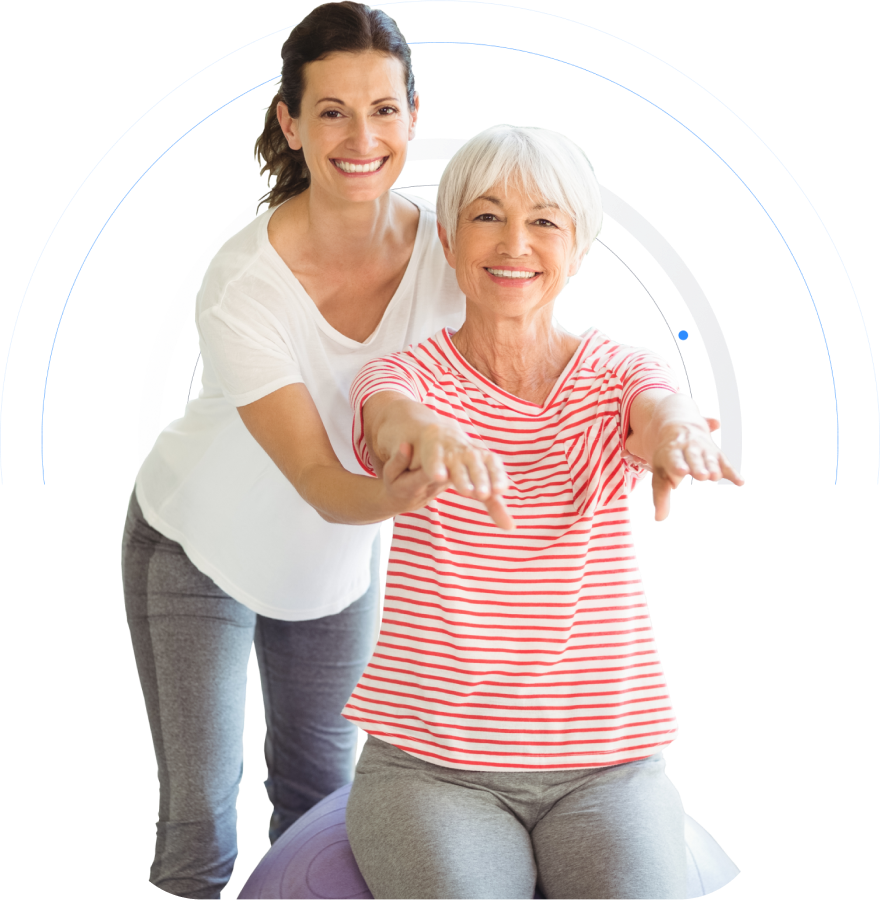This website uses cookies so that we can provide you with the best user experience possible. Cookie information is stored in your browser and performs functions such as recognising you when you return to our website and helping our team to understand which sections of the website you find most interesting and useful.
Home Care In East Brunswick, NJ
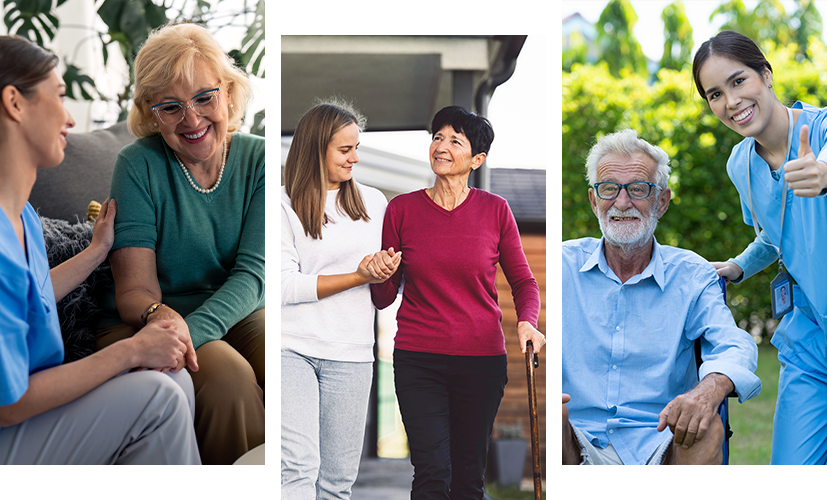
They say that your golden years are the best years of your life. For most older Americans, that's how it should be - a time to relax, reflect, and live life in a familiar place. After all, senior citizens in the U.S. have worked tirelessly to build a better economy, serve their communities, and raise families.
However, as seniors grow older, completing daily tasks like showering and enjoying activities such as visiting the historic East Brunswick Museum Corporation gets harder without someone by their side. Unfortunately, many older Americans aren't able to rely on their adult children for help. The reality in today's world is that family members do not have the skills or time to dedicate to caring for their parents. That's where Always Best Care Senior Services comes in.
Our in-home care services are for people who prefer to stay at home as they grow older but need ongoing care that family or friends cannot provide. More and more older adults prefer to live far away from long-term, institutionalized facilities and closer to the place where they feel most comfortable - their home. Home care in East Brunswick, NJ is a safe, effective way to give your loved ones the care they need when they need it the most.

 Home Care Services
Home Care Services
- Home Care in East Brunswick, NJ
- The Always Best Care Difference
- Types of In-home Care in East Brunswick, NJ
- Benefits of Home Care in East Brunswick, NJ
- Aging in Place: The Preferred Choice for Most Seniors
- Affordable Care Plans
- Compassionate Care. Trusted Caregivers
- Assisted Living Referral Services
- Taking the First Step with Always Best Care
 Service Areas
Service Areas
The Always Best Care Difference
Since 1996, Always Best Care has provided non-medical in-home care for seniors to help them maintain a healthy lifestyle as they get older. We are proud to have helped more than 25,000 seniors maintain higher levels of dignity and respect. We focus on providing seniors with the highest level of in-home care available so that they may live happily and independently.
Unlike some senior care companies, we genuinely want to be included in our clients' lives. We believe that personalized care is always the better option over a "one size fits all" approach. To make sure our senior clients receive the best care possible, we pair them with compassionate caregivers who understand their unique needs. That way, they may provide care accordingly without compromising their wellbeing.
The Always Best Care difference lies in life's little moments - where compassionate care and trustworthy experience come together to help seniors live a fruitful, healthy life. Whether you are an aging adult that can't quite keep up with life's daily tasks or the child of a senior who needs regular in-home services, Always Best Care is here to help.
“We are so appreciative of the care and service of your team. Mariama was a”
“As we wind down our trip to New Jersey both Megan and I wish to”
“A special shoutout to our primary caregivers: Marie C. and Florette P.. They were outstanding!”
“Terrific company. Management is tops. Very caring staff. I highly recommend them. The staff and”
“Always Best Care Senior Services in Princeton Junction exceeded our expectations. Their team was kind,”
“Could not have asked for a more caring group of professionals. From care giver to”
“ABC COULD NOT HAVE DONE BETTER IN A CHANGING SITUATION WITH TWO TERMINALLY PATIENTS HAVING”
“Always best care took care of my father for about 10 years..Though my father was”
“ABC and their amazing care givers enabled our Aunt to get her last wish was”
“Mom developed an infection in the afternoon that left her too weak and disoriented to”
“Faithful, Love, and Family.”
“Very professional organization and sent the right aide, Sam, to help me with my father”
“I had a great experience with the agency, Always Best Care! I am attending college,”
“Roberto took care of my husband like he was a member of his family. He”
“The aide's were respectful, reliable and friendly and staff responds timely to calls and needs”
“Everyone was great. I’ve come a long way due to the help of your aides.”
“You have a GEM in Mrs. Terry. She is worth so much more than she”
“Very very helpful, I was desperate when I called and that same day I had”
“We had an exceptionally good experience with Always Best Care during my mother's illness. The”
“Thank you Jahima, Esther, Satta, Myra, Kelly & Susan. Carmen should be pleased. Keep up”
“Words cannot express how grateful my family and I am for the kindness, care, and”
“Gimbert & Carmen were very accommodating and knowledgeable with the needs of my father. They”
“You have been outstanding in caregiving and concern for us both. We cannot thank you”
“Gimbert and Carmen Fernandez are very knowledgeable in the area of elder care services and”
“My wife and I are eternally grateful to Always Best Care for the wonderful care”
“Your service was just what I needed. I would not hesitate to use your services”
“Mai was wonderful in every way. She gave great care to my father and also”
“ALWAYS BEST CARE, Princeton Junction is the place to call if you need help in”
“It was a pleasure meeting Carmen! I appreciate the time she spent with me -”
“My wife and I are eternally grateful to Always Best Care for the wonderful care”
“We are so appreciative of the care and service of your team. Mariama was a lovely caregiver, and I especially appreciated Carli's guidance throughout the process.”
“As we wind down our trip to New Jersey both Megan and I wish to thank you personally and Always Best Care for taking care of our needs! Your professionalism and support made our experience pleasant. After having experienced three different service providers in Maryland I can say your services are above par! And Ernesta is truly supportive of Megan’s needs. She is calm, compassionate and respectful. Also your on call service is very quick to react to our changing needs!”
“A special shoutout to our primary caregivers: Marie C. and Florette P.. They were outstanding! And extra thanks to Carli, who always came through when we needed backup. Many thanks to the ABC team for all the care you gave to my husband Al H. through 3 years of Parkinson's suffering, and the support you gave me through a hard time.”
“Terrific company. Management is tops. Very caring staff. I highly recommend them. The staff and management are extremely professional and caring, resulting in a very comfortable experience.”
“Always Best Care Senior Services in Princeton Junction exceeded our expectations. Their team was kind, attentive, and provided excellent care tailored to our family’s needs. Communication was clear and supportive throughout. We’re so grateful for their compassion and professionalism. Highly recommend them for anyone seeking trusted senior home care in the area!”
“Could not have asked for a more caring group of professionals. From care giver to support staff, they are exceptional”
“ABC COULD NOT HAVE DONE BETTER IN A CHANGING SITUATION WITH TWO TERMINALLY PATIENTS HAVING ALZ AND STAGE IV PANCREATIC CANCER. QUALITY OF CARE TAKER WAS SUPERB AND RESPONSIVENESS TO CHANGING NEEDS PERFECT.”
“Always best care took care of my father for about 10 years..Though my father was very lucid and managed his own care with the agency, I was at his house alot and participated in his care with the aids. They were all very caring and he kindly spoke of the owners being very attentive and offered very personalized care. They even visited him. I am very fond of many of the home health aids..they were loving and concerned. They took their job to another level. I even formed friendships with some of them. The golden years are a very delicate part of our lives. Always best care not only offered good physical care to my father, but unbounded love and compassion !!!! Thank you and he is looking down at us. I'm sure.”
“ABC and their amazing care givers enabled our Aunt to get her last wish was to die in her home. I can’t say enough about how ABC was able to give her a quality of life that she valued as well as provide comfort to her family knowing that she was in good hands with ABC's Caregivers. From the caregivers that always went the extra mile to the fast response we got 24x7 from folks like Carli…you were there for us!”
“Mom developed an infection in the afternoon that left her too weak and disoriented to care for herself for that night. I called Always Best Care Senior Services (ABC) at the very end of the business day, asking if they could find someone for one night of 12-hour private duty care on pretty much an emergency basis. The ABC team went to work and secured a caregiver for mom within a matter of hours for an 8pm-to-8am care shift at mom's senior living community. We had worked with ABC in the past on a scheduled basis, but this experience was above and beyond the call of regular duty and it truly helped us get through a difficult and stressful episode. We would recommend ABC for any and all of your senior care needs.”
“Faithful, Love, and Family.”
“Very professional organization and sent the right aide, Sam, to help me with my father in day to day activities. Sam helps him with gait training and understands dementia care and how to handle care, the way the client needs it. I would not hesitate using this agency and Sam is excellent.”
“I had a great experience with the agency, Always Best Care! I am attending college, and they always provided me an aide that is helpful, considerate, and hardworking. Thank you for always providing me with an aide like Ms. Colleta!!”
“Roberto took care of my husband like he was a member of his family. He was God sent; thank God for him”
“The aide's were respectful, reliable and friendly and staff responds timely to calls and needs”
“Everyone was great. I’ve come a long way due to the help of your aides. Thank you again!”
“You have a GEM in Mrs. Terry. She is worth so much more than she is paid! I miss her. Her help was timely, professional, and invaluable”
“Very very helpful, I was desperate when I called and that same day I had professional help. Tremendous your service”
“We had an exceptionally good experience with Always Best Care during my mother's illness. The management met with us and assigned caregivers almost immediately. As our needs evolved and increased, they were responsive and flexible. The caregivers were well-trained, kind, hard-working, and truly fine people whom we enjoyed having in the house.”
“Thank you Jahima, Esther, Satta, Myra, Kelly & Susan. Carmen should be pleased. Keep up the good work, and be safe!”
“Words cannot express how grateful my family and I am for the kindness, care, and concern that was shown for my husband by the Always Best Care staff. Thank you for the exceptional attention to his comfort, as well as the wonderful insights, strength, knowledge, and emotional support you showed our entire family. Watching someone you love make the transition out of this life is a really difficult thing, and your wisdom and comfort helped us navigate this challenging time. I will always be thankful for the service you provided for him. I would also like to acknowledge the excellent care provided to my husband by Ms. Marie Louisjean. We thank Ms. Louisjean for her incredible patience, tenderness, and attention to his needs. We thank her for being such a dedicated caregiver. God has given her a very special talent and He has blessed her with a compassionate heart. I could not have asked for a more passionate group of people. May God continue to bless the Always Best Care staff as you continue to care for people in need.”
“Gimbert & Carmen were very accommodating and knowledgeable with the needs of my father. They came out to his house and offered suggestions so that he would be able to get around with his walker easily. Their person took great care of my Dad. It is such a relief to my sister and I that we had someone stay with my Dad that was so reliable. I highly recommend them.”
“You have been outstanding in caregiving and concern for us both. We cannot thank you enough. Thanks for always being there for us in every way.”
“Gimbert and Carmen Fernandez are very knowledgeable in the area of elder care services and how best to provide workable care solutions for aging relatives. They are well informed on current issues and available options. I speak from my own experience here and strongly recommend then and their company to anyone in need of assistance in this area. They are compassionate and caring people which is critical in their business!”
“My wife and I are eternally grateful to Always Best Care for the wonderful care they provided for our Aunt and Uncle as they battled with diminishing health and mental conditions. Carmen and Gimbert were always available to us to answer questions and discuss aspects of care that was needed. Without their help the situations that we faced would have been so much worse. God Bless.”
“Your service was just what I needed. I would not hesitate to use your services in the future if needed. I would recommend you to anyone needing your help. Again, thank you for caring.”
“Mai was wonderful in every way. She gave great care to my father and also cared for me and my family.”
“ALWAYS BEST CARE, Princeton Junction is the place to call if you need help in caring for a loved one. We have a brother and his significant other who were living independently and when visiting them realized they had not been eating or keeping their home clean. Since we knew of Always Best Care and heard of their excellent reputation we contacted them. They immediately stepped in and assisted us in knowing what steps we needed to take. After taking both our brother and his significant other to the doctors and learning that they had the beginnings of Alzheimer’s disease, we met with Carmen who helped us set up a plan. She suggested that we start with a few days a week of in home care so that we would know that they were eating. She provided us with excellent aids that not only helped prepare meals, but also interacted with our family members to encourage socialization. These few days increased to five days a week which left us with Saturday and Sunday to monitor their eating. While this was taking place, Carmen helped us find an Assisted Living Community where they could move. We visited several in the area and decided on one after consulting with Carmen. She and Gimbert were always available to take our calls if we had any questions. They helped us with finding someone to clean out the house and assisted us in relocating our bother and his significant other to their new home. We have recommended Always Best Care to several of our neighbors who have needed assistance with caring for loved ones. Carmen is on top of any situation that needs attention. Whether a person needs an aid for a week, a month or indefinitely she arranges the right person for the client’s needs. Always Best Care, Carmen and Gimbert, cared for our family members as if they were their own family. We would not have been able to care for our family members as well as the aids from Always Best Care.Hopefully we will not need the services of Always Best Care again, but if we do we know that they will be there to help us.”
“It was a pleasure meeting Carmen! I appreciate the time she spent with me - her knowledge/advice, genuine caring, and friendly personality. We're managing well and hopefully that continues and if needed, we know to call ABC.”
“My wife and I are eternally grateful to Always Best Care for the wonderful care they provided for our Aunt and Uncle as they battled with diminishing health and mental conditions. Carmen and Gimbert were always available to us to answer questions and discuss aspects of care that was needed. Without their help the situations that we faced would have been so much worse. God Bless.”
What is Non-Medical Senior Care in East Brunswick, NJ?

Home is where the heart is. While that saying can sound a tad cliche, it is especially true for many seniors living in America. When given a choice, older adults most often prefer to grow older at home. An AARP study found that three out of four adults over the age of 50 want to stay in their homes and communities as they age.

When you begin to think about why, it makes sense. Home offers a sense of security, comfort, and familiarity.

The truth is, as we age, we begin to rely on others for help. When a family is too busy or lives too far away to fulfill this role, in-home senior care is often the best solution. Home care services allow seniors to enjoy personal independence while also receiving trustworthy assistance from a trained caregiver.

At Always Best Care, we offer a comprehensive range of home care services to help seniors stay healthy while they get the help they need to remain independent. As your senior loved one gets older, giving them the gift of senior care is one of the best ways to show your love, even if you live far away.
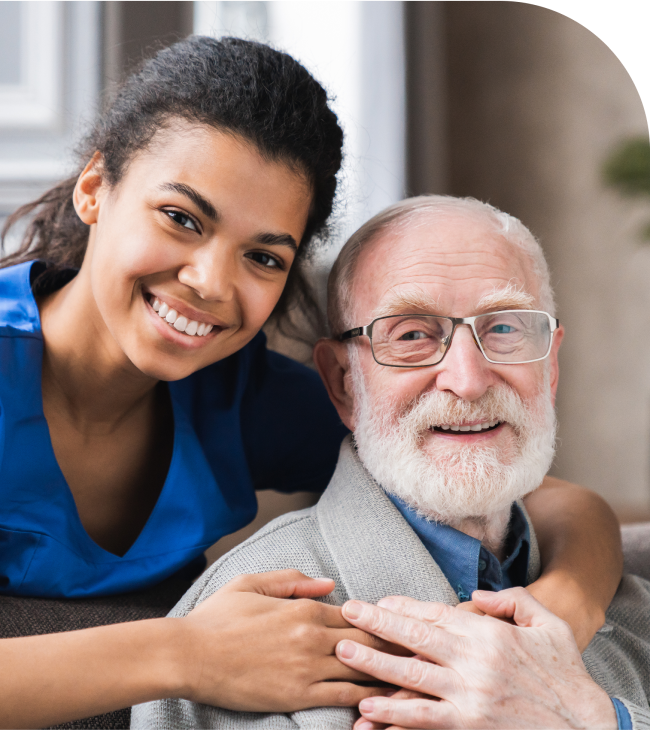
Types of Elderly Care in East Brunswick, NJ
To give our senior clients the best care possible, we offer a full spectrum of in-home care services:

Personal Care Services
If your senior loved one has specific care needs, our personal care services are a great choice to consider. Personal care includes the standard caregiving duties associated with companion care and includes help with tasks such as dressing and grooming. Personal care can also help individuals with chronic conditions like diabetes.
Common personal care services include assistance with:
- Eating
- Mobility Issues
- Incontinence
- Bathing
- Dressing
- Grooming
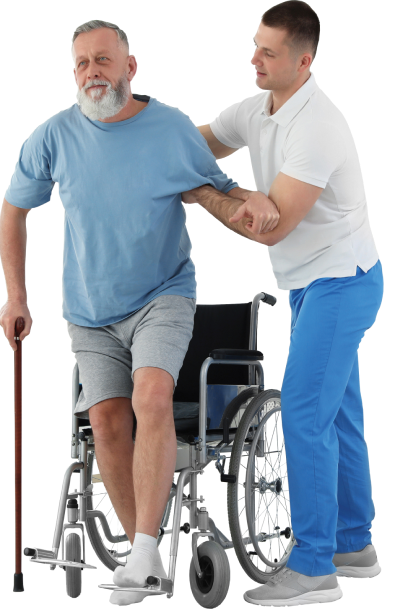

Home Helper Services
Sometimes, seniors need helpful reminders to maintain a high quality of life at home. If you or your senior has trouble with everyday tasks like cooking, our home helper services will be very beneficial.
Common home helper care services include assistance with:
- Medication Reminders
- Meal Preparation
- Pet Care
- Prescription Refills
- Morning Wake-Up
- Walking
- Reading
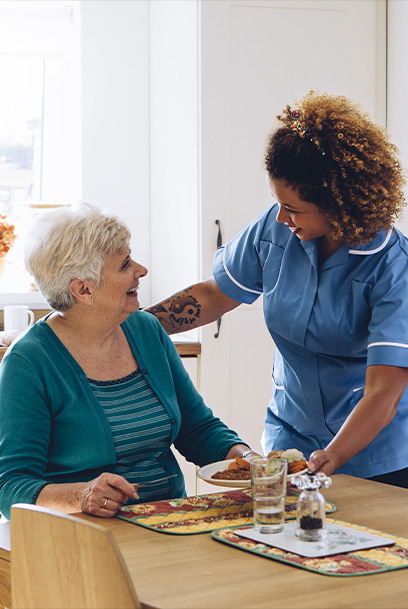

Companionship Services
Using this kind of care is a fantastic way to make life easier for you or your senior loved one. At Always Best Care, our talented caregivers often fill the role of a companion for seniors. That way, older adults can enjoy their favorite local activities, such as visiting Great Oak Park with friends while also receiving the care they need daily or weekly.
Common companionship services include:
- Grocery Shopping
- Transportation to Appointments
- Nutritional Assistance
- Conversation
- Planning Outings
- Completing Errands
- Transportation to Community
- Events and Social Outings
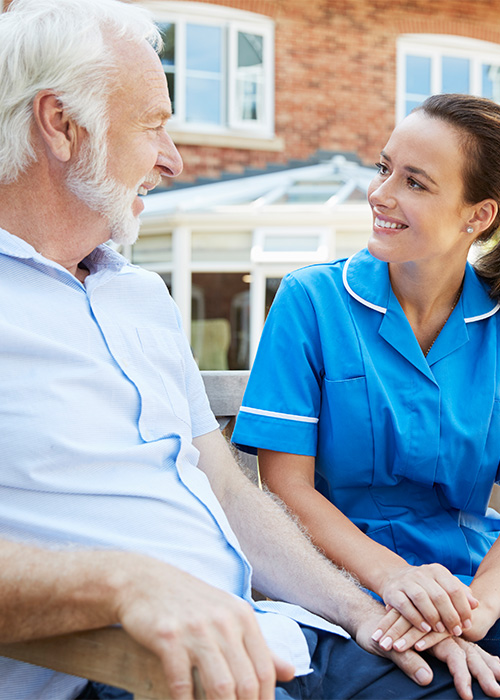

Respite Care Services
According to AARP, more than 53 million adults living in the U.S. provide care to someone over 50 years old. Unfortunately, these caregivers experience stress, exhaustion, and even depression. Our respite care services help family caregivers address urgent obligations, spend time with their children, and enjoy nearby activities. Perhaps more importantly, respite care gives family members time to recharge and regroup. Taking personal time to de-stress reduces the risk of caregiver burnout. So, if you've always wanted to eat at the local Orchid Fine Asian Cuisine or visit Museum at Buccleuch Mansion, don't feel bad. Doing so is great for both you and your loved one.
At the end of the day, our goal is to become a valuable part of your senior's daily routine. That way, we may help give them the highest quality of life possible. We know that staying at home is important for your loved one, and we are here to help make sure that is possible.
If you have been on the fence about non-medical home care, there has never been a better time than now to give your senior the care, assistance, and companionship they deserve.
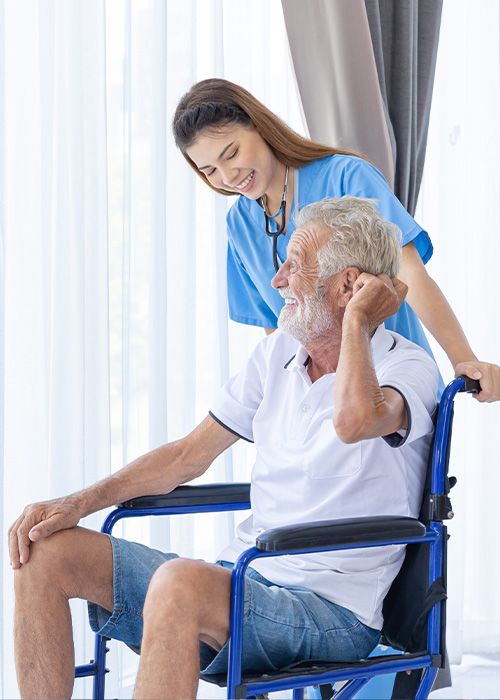
Benefits of Home Care in East Brunswick, NJ
Always Best Care in-home services are for older adults who prefer to stay at home but need ongoing care that friends and family cannot provide. In-home care is a safe, effective way for seniors to age gracefully in a familiar place and live independent, non-institutionalized lives. The benefits of non-medical home care are numerous. Here are just a few reasons to consider senior care services from Always Best Care:
Always Best Care offers a full array of care options for patients at all levels of health. With our trusted elderly care services, your loved one will receive the level of care necessary for them to enjoy the highest possible quality of life.
Request More Information
Aging in Place: The Preferred Choice for Most Seniors
While it's true that some seniors have complicated medical needs that prevent them from staying at home, aging in place is often the best arrangement for seniors and their families. With a trusted caregiver, seniors have the opportunity to live with a sense of dignity and do so as they see fit - something that is unavailable to many older people today.
In-home care makes it possible for millions of seniors to age in place every year. Rather than moving to a strange nursing home, seniors have the chance to stay at home where they feel the happiest and most comfortable.
Here are just a few of the reasons why older men and women prefer to age at home:
How much does a senior's home truly mean to them?
A study published by the American Society on Aging found that more than half of seniors say their home's emotional value means more than how much their home is worth in monetary value. It stands to reason, then, that a senior's home is where they want to grow old.
With the help of elderly care in East Brunswick, NJ, seniors don't have to age in a sterilized care facility. Instead, they can age gracefully in the place they want to be most: their home. In contrast, seniors who move to a long-term care facility must adapt to new environments, new people, and new systems that the facility implements. At this stage in life, this kind of drastic change can be more harmful than helpful.
Institutional care facilities like nursing homes often put large groups of people together to live in one location. On any given day, dozens of staff members and caregivers run in and out of these facilities. Being around so many new people in a relatively small living environment can be dangerous for a seniors' health and wellbeing. When you consider that thousands of seniors passed away in nursing homes during the COVID-19 pandemic, opting for in-home care is often a safer, healthier choice for seniors.
Aging in place has been shown to improve seniors' quality of life, which helps boost physical health and also helps insulate them from viral and bacterial risks found in elderly living facilities.
For many seniors, the ability to live independently with assistance from a caregiver is a priceless option. With in-home care, seniors experience a higher level of independence and freedom - much more so than in other settings like a nursing home. When a senior has the chance to age in place, they get to live life on their own terms, inside the house that they helped make into a home. More independence means more control over their personal lives, too, which leads to increased levels of fulfillment, happiness, and personal gratification. Over time, these positive feelings can manifest into a healthier, longer life.
More independence, a healthier life, and increased comfort are only a few benefits of aging in place. You have to take into consideration the role of cost and convenience. Simply put, it's usually easier and more affordable to help seniors age in place than it is to move them into an institutional care facility. According to the US Department of Housing and Urban Development, seniors who age in the comfort of their homes can save thousands of dollars per month.
In-home care services from Always Best Care, for instance, are often less expensive than long-term solutions, which can cost upwards of six figures per year. To make matters worse, many residential care facilities are reluctant to accept long-term care insurance and other types of payment assistance.
With Always Best Care's home care services, seniors and their families have a greater level of control over their care plans. In-home care gives seniors the chance to form a bond with a trusted caregiver and also receive unmatched care that is catered to their needs. In long-term care facilities, seniors and their loved ones have much less control over their care plan and have less of a say in who provides their care.
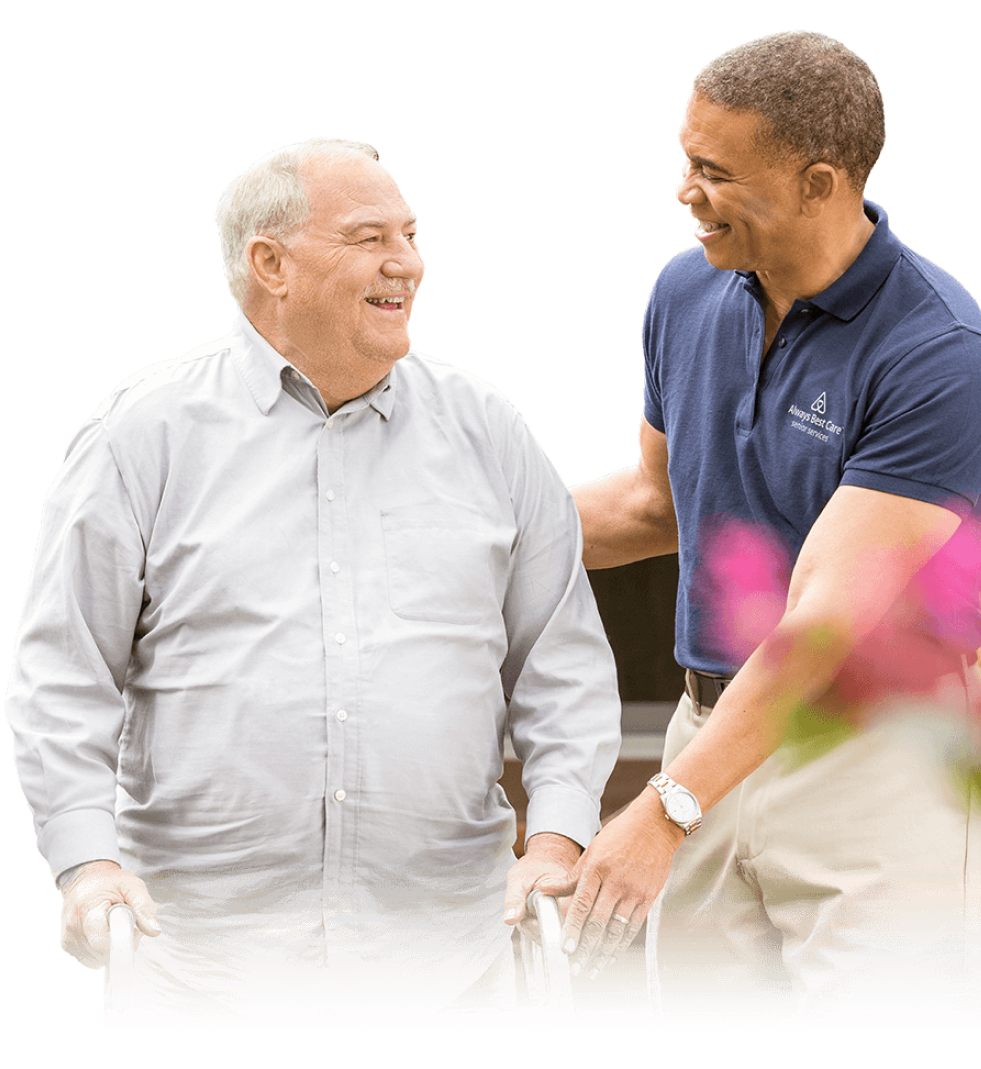
Affordable Care
In-home care is a valuable resource that empowers seniors to age in place on their own terms. However, a big concern for many families and their loved ones is how much in-home care costs. If you're worried that in-home care is too expensive, you may be pleasantly surprised to learn that it is one of the most affordable senior care arrangements available.
Typically, hiring an Always Best Care in-home caregiver for a few hours a week is more affordable than sending your loved one to a long-term care facility. This is true even for seniors with more complex care needs.
At Always Best Care, we will work closely with you and your family to develop a Care Plan that not only meets your care needs, but your budget requirements, too. Once we discover the level of care that you or your senior need, we develop an in-home care plan that you can afford.
In addition to our flexible care options, families should also consider the following resources to help offset potential home care costs:
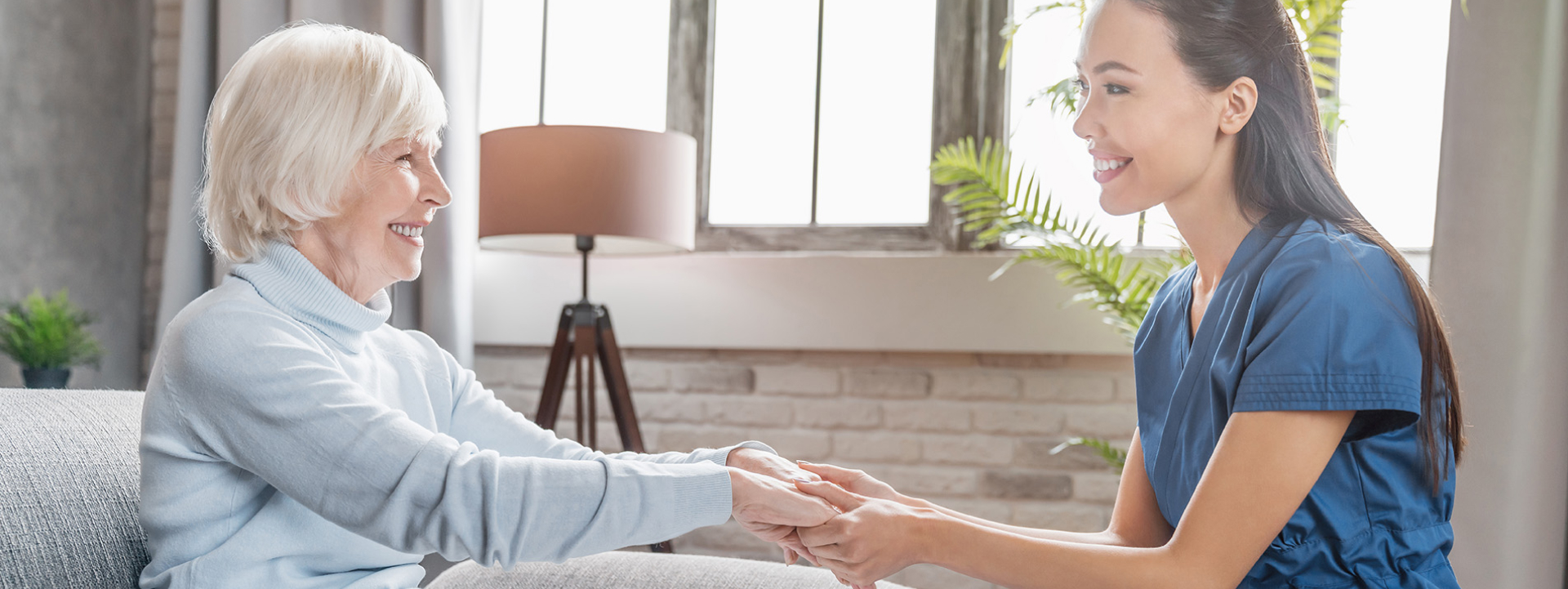
Compassionate Care. Trusted Caregivers.
When you or your senior loved one needs assistance managing daily tasks at home, finding a qualified caregiver can be challenging. It takes a special kind of person to provide reliable care for your senior loved one. However, a caregiver's role involves more than meal preparation and medication reminders. Many seniors rely on their caregivers for companionship, too.
Our companion care services give seniors the chance to socialize in a safe environment and engage in activities at home. These important efforts boost morale and provide much-needed relief from repetitive daily routines. A one-on-one, engaging conversation can sharpen seniors' minds and give them something in which to be excited.
At Always Best Care, we only hire care providers that we would trust to care for our own loved ones. Our senior caregivers in East Brunswick, NJ understand how important it is to listen and communicate with their seniors. A seemingly small interaction, like a short hug goodbye, can make a major difference in a senior's day. Instead of battling against feelings of isolation, seniors begin to look forward to seeing their caregiver each week.
Understanding the nuances of senior care is just one of the reasons why our care providers are so great at their job.
Unlike some senior care companies, our caregivers must undergo extensive training before they work for Always Best Care. In addition, our caregivers receive ongoing training throughout the year. This training ensures that their standard of care matches up to the high standards we've come to expect. During this training, they will brush up on their communication skills, safety awareness, and symptom spotting. That way, your loved one receives the highest level of non-medical home care from day one.
Assisted Living Referral Services
While it's true that many seniors prefer to age at home, sometimes in-home care isn't the best fit. For those seniors and their families, choosing an assisted living facility makes more sense. Unfortunately, finding the optimal care facility is easier said than done in today's day and age. That's when Always Best Care's assisted living referral services begin to make a lot of sense.
Assisted living is a form of housing intended for seniors who require varying degrees of medical and personal attention. Accommodations may include single rooms, apartments, or shared living arrangements. Assisted living communities are typically designed to resemble a home-like environment and are physically constructed to encourage the independence of residents.
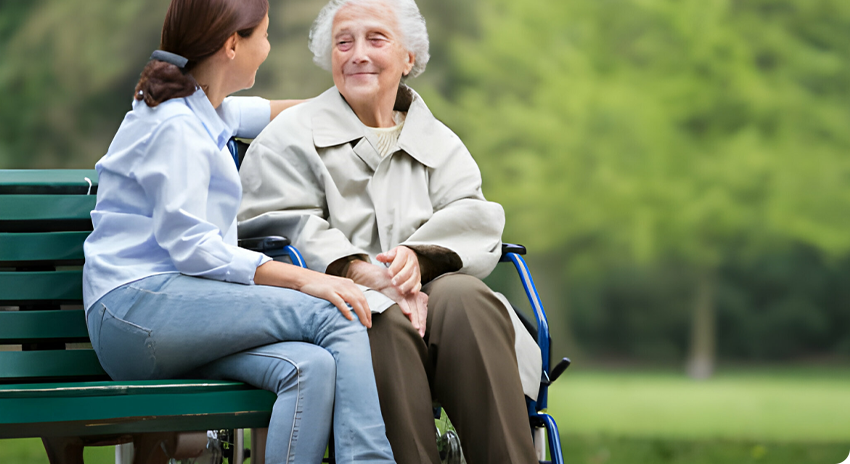
At assisted living communities, seniors receive help with daily activities such as bathing, dressing, and eating. They may also benefit from coordination of services with outside healthcare providers, and monitoring of resident activities to ensure their health, safety, and well-being. Caregivers who work at assisted living communities can also provide medication administration and personal care services for older adults.
Other services offered within assisted living communities can include some or all of the following:
- Housekeeping
- Laundry
- Recreational Activities
- Social Outings
- Emergency Medical Response
- Medication Monitoring
- Family Visitation
- Personal Care
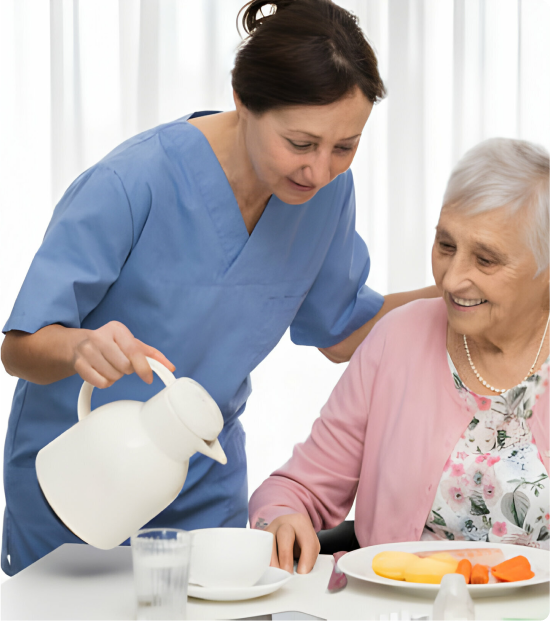
At Always Best Care, our representatives can match your senior's emotional, physical, and financial needs with viable assisted living communities nearby. Results are based on comparative data, so you can select the best choice for you or your loved one.
Always Best Care works closely with local senior living communities to gain valuable knowledge that we then use to help seniors and their loved ones make informed decisions. This information can include basic care and rent, resident availability, and services provided. Because Always Best Care is compensated by these communities, we provide senior living referral services at no extra cost to you.
Some of the most popular assisted living communities to consider in our area include the following:
- CareOne at East Brunswick Assisted Living
- The Chelsea at East Brunswick
- Sunrise of East Brunswick
- CareOne at East Brunswick
- Fox Trail Memory Care Living at South River
- Rose Mountain Care Center
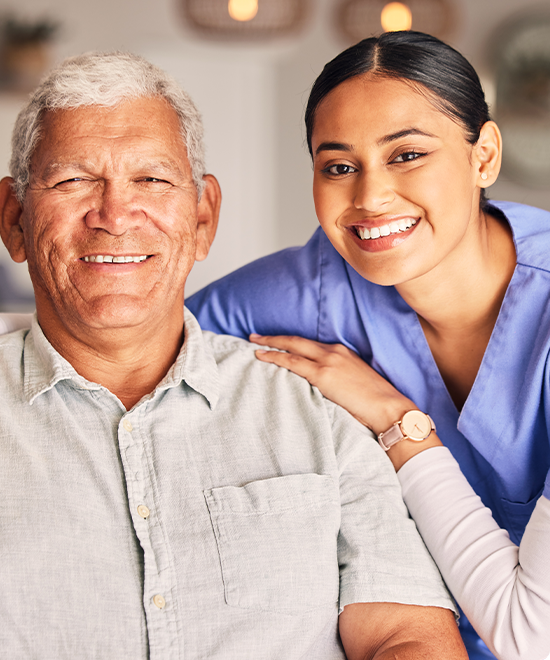
For many seniors, moving into a senior living community revolves around how and when they want to make a transition to more involved care. Some seniors are more proactive about transitioning to independent living. Others choose to remain home until their care needs or other requirements are satisfied. Remember - our staff is here to help. Contact our office today to learn more about assisted living communities and how we can find a facility that exceeds your expectations.
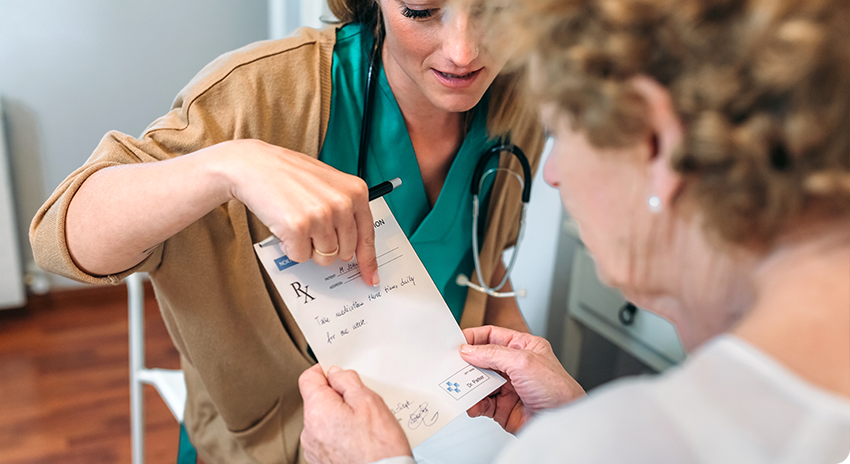
Taking the First Step with Always Best Care
The first step in getting quality in-home care starts with a personal consultation with an experienced Always Best Care Care Coordinator. This initial consultation is crucial for our team to learn more about you or your elderly loved one to discover the level of care required. Topics of this consultation typically include:
A discussion of your needs and how our trained caregivers can offer assistance in the most effective way

A draft of your care plan, which includes highly detailed notes and a framework for the care that you or your senior will receive

Discuss payment options and help coordinate billing with your insurance provider

Our caregivers are trained to spot changes that clients exhibit, like mental and physical decline. As your trusted senior care company, we will constantly assess and update your Care Plan to meet any new emotional, intellectual, physical, and emotional needs.
If you have never considered in-home care before, we understand that you and your family may have concerns about your Care Plan and its Care Coordinator. To help give you peace of mind, know that every team member and caregiver must undergo comprehensive training before being assigned to a Care Plan.
At the end of the day, we only hire the best of the best at Always Best Care. Whether you need home care in East Brunswick, NJ 24-hours a day or only need a respite for a couple of hours, we are here to serve you.
When you're ready, we encourage you to contact your local Always Best Care representative to set up a Care Consultation. Our Care Coordinators would be happy to meet with you in person to get to know you better, discuss your needs, and help put together a personalized Care Plan specific to your needs.
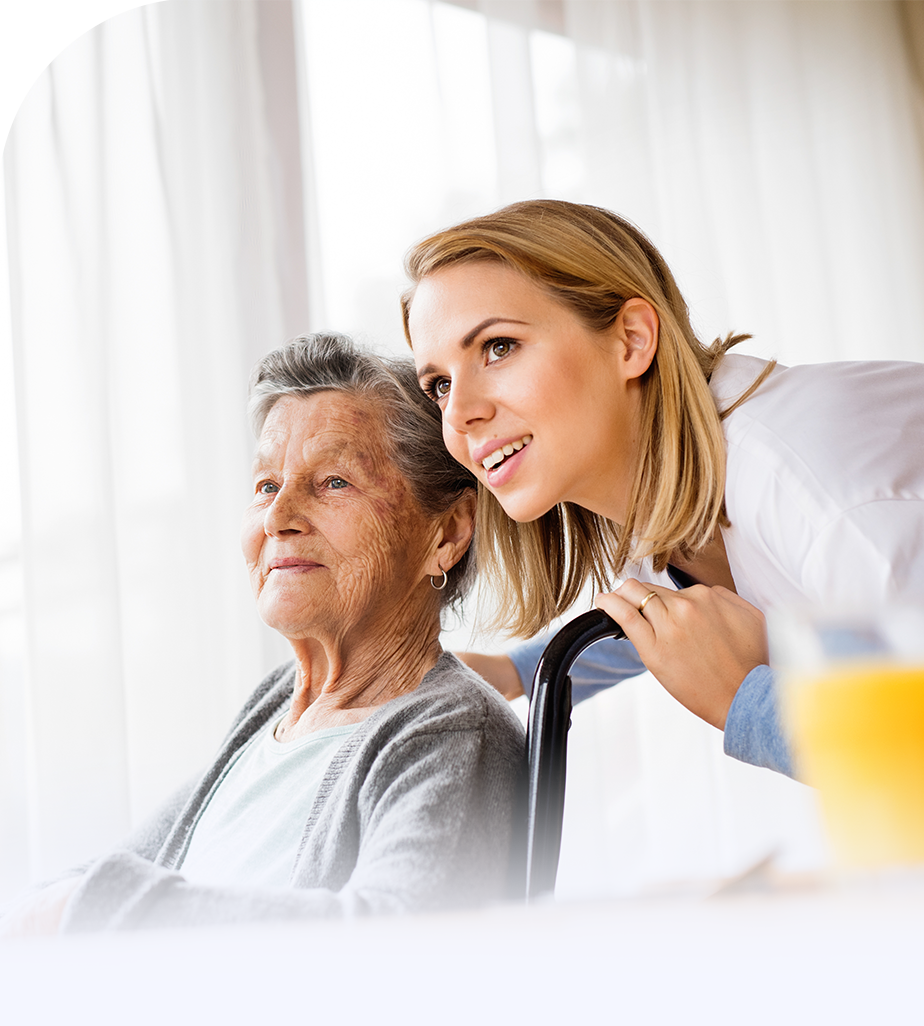
Latest News in East Brunswick, NJ
East Brunswick Teen to Compete at Pebble Beach in National Golf Championship
TAPintohttps://www.tapinto.net/towns/east-brunswick/sections/community-happenings/articles/east-brunswick-teen-to-compete-at-pebble-beach-in-national-golf-championship
EAST BRUNSWICK, NJ - Justin Hsieh of First Tee – Raritan Valley is one of 80 teens nationwide selected to compete in the 2025 PURE Insurance Championship Impacting First Tee, taking place September 19–21 at the Pebble Beach Golf Links and Spyglass Hill Golf Course.Hosted by PURE Insurance and the Monterey Peninsula Foundation, and broadcast internationally on Golf Channel, the annual event pairs First Tee participants with PGA TOUR Champions professionals and amateurs from the business world for a week of competition and m...
EAST BRUNSWICK, NJ - Justin Hsieh of First Tee – Raritan Valley is one of 80 teens nationwide selected to compete in the 2025 PURE Insurance Championship Impacting First Tee, taking place September 19–21 at the Pebble Beach Golf Links and Spyglass Hill Golf Course.
Hosted by PURE Insurance and the Monterey Peninsula Foundation, and broadcast internationally on Golf Channel, the annual event pairs First Tee participants with PGA TOUR Champions professionals and amateurs from the business world for a week of competition and mentorship. Competitors, ages 15–18, represent 48 First Tee chapters across the country and will vie for the male and female pro-junior titles.
Hsieh is a rising senior from East Brunswick. Justin plans to play collegiate golf while studying aerospace engineering. Passionate about mentorship, he is dedicated to competing at the highest level while making a positive impact in his community.
“I’m incredibly honored to be selected for the PURE Insurance Championship,” Hsieh said in a news release. “First Tee has shaped my game and the person I’ve become. I’m excited for this opportunity to play at Pebble Beach and represent my chapter.”
Participants are chosen based on golf skill and personal growth through First Tee’s youth development programs.
“Justin is an exceptional young man whose golf skills are matched by his commitment to First Tee’s core values of respect, honesty, and perseverance,” said Mark McCabe, Executive Director of First Tee – Raritan Valley. “His selection is a testament to his character, dedication, and ability to represent our chapter with excellence.”
Tournament play begins Friday on both Pebble Beach Golf Links and Spyglass Hill Golf Course. Following Saturday’s rounds, the top 24 juniors will advance to Sunday’s final at Pebble Beach, where one male and one female First Tee participant will be crowned champions.
For the full 2025 junior field, visit PUREInsuranceChampionship.com. To learn more about First Tee, visit FirstTee.org.
Fashion & Art Studio Moves To New Location In East Brunswick
Sarah Salvadorehttps://patch.com/new-jersey/eastbrunswick/new-fashion-art-studio-moves-new-location-east-brunswick
EAST BRUNSWICK, NJ - East Brunswick recently celebrated the new location opening of Busy Bee Fashion and Art Studio with a ribbon-cutting ceremony on the Route 18 Business Corridor, marking a unique addition to the community's growing business landscape.Unlike many of the recent restaurant and service openings in the area, this new venture offers something distinctly tactile and educational. "It's a little bit more unique than most of the ribbon-cuttings we've done in the past year or two, where we've got a lot of restaurants, se...
EAST BRUNSWICK, NJ - East Brunswick recently celebrated the new location opening of Busy Bee Fashion and Art Studio with a ribbon-cutting ceremony on the Route 18 Business Corridor, marking a unique addition to the community's growing business landscape.
Unlike many of the recent restaurant and service openings in the area, this new venture offers something distinctly tactile and educational. "It's a little bit more unique than most of the ribbon-cuttings we've done in the past year or two, where we've got a lot of restaurants, services, and sports things that are coming into town. This one, actually, you've got to get out and use your hands," Mayor Brad Cohen said during the ceremony. "It takes us back probably a century – back to the old sewing machines and using your hands to make material useful, to repair material and appreciate the art of sewing."
Owner Melissa Quijano has created a creative hub that serves both children and adults. "We have sewing and fashion design classes, but we also have art and crochet and knitting here. We have a lot going on," Quijano explained. The studio goes beyond just classes, also selling fabric, sewing supplies, and handmade items created by local women in the community.
The studio's accessibility is one of its key features. "You don't ever need any experience to come to any of our classes," Quijano said.
The offerings range from one-off workshop projects like stuffed animals and clothing to regular classes for students as young as four years old. For adults seeking a social creative outlet, the studio hosts "sip and stitch" events where participants can enjoy wine while working on sewing projects.
Busy Bee Fashion and Art Studio adapts its schedule to serve the community year-round. During the school year, classes run Monday through Friday from 4:30 to 8:00 p.m., with some daytime sessions available. Summer hours are Tuesday through Thursday from 10 a.m. to 4 p.m., ensuring accessibility for both working parents and students.
The studio's annual fashion show has already become a highlight, with last year's event taking place at the nearby East Brunswick Mall, showcasing the talents and creations of students and community members.
Quijano said that social media platforms like TikTok and Instagram have significantly boosted interest in do-it-yourself projects, particularly among young people. This trend has created natural demand for the hands-on skills and creative outlet that Busy Bee provides.
The ribbon-cutting ceremony was attended by Cohen, Economic Development Officer Rob Zuckerman, and Ronnie Li from the East Brunswick Regional Chamber of Commerce, all joining owner Quijano to celebrate this exciting addition to the local business community.
Future of East Brunswick 'bridge to nowhere' bike path in question
Susan Loyerhttps://www.mycentraljersey.com/story/news/local/middlesex-county/2025/08/30/east-brunswick-bike-path/85869383007/
EAST BRUNSWICK – Township officials are exploring their options since the price of a bike path connecting Crystal Springs Family Waterpark to the East Brunswick Community Arts Center have skyrocketed to seven times the original cost.At the Aug. 25 Township Council meeting, Mayor Brad Cohen gave an update on the project which he said, “falls under what I call the category of a bridge to nowhere.”Several years ago, before he was mayor, the township was awarded an approximately $500,000 federal grant to do the bi...
EAST BRUNSWICK – Township officials are exploring their options since the price of a bike path connecting Crystal Springs Family Waterpark to the East Brunswick Community Arts Center have skyrocketed to seven times the original cost.
At the Aug. 25 Township Council meeting, Mayor Brad Cohen gave an update on the project which he said, “falls under what I call the category of a bridge to nowhere.”
Several years ago, before he was mayor, the township was awarded an approximately $500,000 federal grant to do the bike path, Cohen said.
Over the course of the years between engineering and environmental costs, the cost of the project has ballooned to $3.5 million, he said.
The federal government recently notified the township it will stop funding the project at $2.5 million, the mayor said.
“If we wanted to finish the work, we need to figure out how we’re going to come up with a million dollars,” Cohen said.
The township is now looking to see if the state or county will contribute towards the difference, Cohen said, but “it’s our intention at this point that if we cannot come up with someone to bridge that gap, I do not think that it is something we should burden the taxpayers with.”
Business Administrator Joseph Cricuolo said the township is working with state Sen. Patrick J. Diegnan Jr.'s office and others "to see if we can push it over the finish line, but it’s a tough one."
Email: [email protected]
Susan Loyer covers Middlesex County and more for MyCentralJersey.com. To get unlimited access to her work, please subscribe or activate your digital account today.
East Brunswick Native Makes History As 1st Female Editor-In-Chief Of Rolling Stone
Sarah Salvadorehttps://patch.com/new-jersey/eastbrunswick/east-brunswick-native-makes-history-1st-female-editor-chief-rolling-stone
EAST BRUNSWICK, NJ – East Brunswick native Shirley Halperin created history after being named the first woman editor-in-chief of Rolling Stone magazine.The veteran music journalist will serve as co-editor-in chief with Sean Woods, the magazine said.Halperin will step into her new role on Sept. 1 after serving as co-editor in chief of "The Hollywood Reporter."“I’m very proud — personally and professionally — to help usher in the next era of the world’s most formidable music pu...
EAST BRUNSWICK, NJ – East Brunswick native Shirley Halperin created history after being named the first woman editor-in-chief of Rolling Stone magazine.
The veteran music journalist will serve as co-editor-in chief with Sean Woods, the magazine said.
Halperin will step into her new role on Sept. 1 after serving as co-editor in chief of "The Hollywood Reporter."
“I’m very proud — personally and professionally — to help usher in the next era of the world’s most formidable music publication as its first female EIC,” Halperin said on Instagram.
Halperin is a 1990 alum of East Brunswick High School. She majored in history at Rutgers University.
She migrated from Israel with her family and settled in the township. She said her parents chose central New Jersey “for its robust Jewish community.” Another key factor is its proximity to New York City and the blue-ribbon public schools.
“My time at East Brunswick prepared me for real life. The school was probably mostly white back then, but it didn’t feel that way. I had friends of all colors, religions and socio-economic backgrounds — whose photos and life goals I looked forward to perusing in the almighty yearbook,” Halperin wrote in the Jewish Journal last year.
Halperin brings over 20 years of expertise in entertainment and music journalism to her new role. Throughout her career, she has served in senior editorial positions at industry-leading publications including "Variety", "Billboard", "The Hollywood Reporter", and "Los Angeles Magazine."
During her tenure at these publications, Halperin played a key role in developing high-profile industry events, including Variety's Hitmakers celebration and Billboard's signature No.1s franchise series.
Her journalism has been recognized with multiple Los Angeles Press Club awards, and she has authored three books.
State Praises East Brunswick For Being ‘Film Ready’
Sarah Salvadorehttps://patch.com/new-jersey/eastbrunswick/state-praises-east-brunswick-being-film-ready
With "a remarkable variety of landscapes," the township is ready to host studios and networks. EAST BRUNSWICK, NJ – We told you back in May that East Brunswick received the “Film Ready” certification from the New Jersey Motion Picture & Television Commission.This certification will allow the township to attract studios and networks looking for their next production site.The ...
With "a remarkable variety of landscapes," the township is ready to host studios and networks.
EAST BRUNSWICK, NJ – We told you back in May that East Brunswick received the “Film Ready” certification from the New Jersey Motion Picture & Television Commission.
This certification will allow the township to attract studios and networks looking for their next production site.
The New Jersey Motion Picture and Television Commission (NJMPTVC) is part of the New Jersey Economic Development Authority (NJEDA)
Last week, the state’s film commission praised the township and other towns for having “a remarkable variety of landscapes that meet the diverse needs of film and television productions.”
“Under Governor Murphy’s leadership, New Jersey has reestablished itself as a premier destination for the industry — creating jobs, supporting small businesses, and driving meaningful economic growth in communities across the state,” NJEDA Chief Executive Officer Tim Sullivan. Through the Film Ready New Jersey Program, municipalities are better positioned to welcome and support productions of every scale, from big-budget blockbusters to independent films.”
East Brunswick is among 19 municipalities to be designated as Film Ready Community following completion of the Film Ready New Jersey Program.
“The NJMPTVC has built consistency into the Film Ready program so when studios or networks bring projects to New Jersey, Film Ready localities are prepared for any opportunity that may arise,” said NJMPTVC Executive Director Jon Crowley. “As the Garden State continues to break records in film and television production, initiatives like Film Ready exemplify the state’s commitment to ensuring towns and counties across the state share in the industry’s immense economic benefits.”
The push to make East Brunswick a regional hub started almost eight years ago, when Mayor Brad Cohen and his administration started on the plan to revitalize Route 18.
Meanwhile, Cohen and his administration will be looking at ways to celebrate this important milestone with the community. An announcement on the same will be made in time.
Disclaimer:


 609-455-2886
609-455-2886
